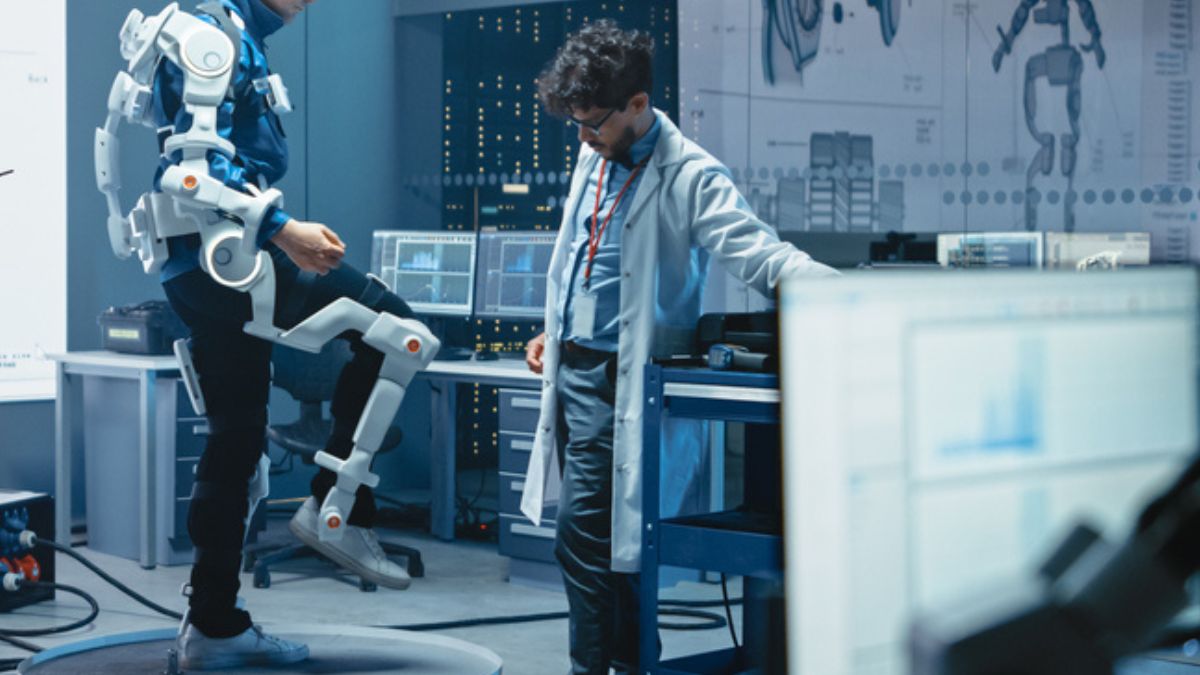From AI-powered smartglasses to prosthetics: Here are major tech products for Divyangjan ahead of ‘AI for Empowering PwDs’ summit
 Representative Image
Representative Image
As the Ministry of Social Justice & Empowerment gears up for the the ‘AI for Empowering PwDs’ summit in Bengaluru on May 30, India will see the launch of a new National Disability Support AI Chatbot for Persons with Disabilities (PwDs) or Divyangjan.
This is in line with the Centre looking to bring better accessibility with its Mission AI, especially through the implementation of AI in assistive technology and tools for empowering Divyangjan.
The conference is set to be conducted on Friday under the ambit of the Department of Empowerment of Persons with Disabilities (DEPwD) in collaboration with Artificial Limbs Manufacturing Corporation of India (ALIMCO) in the Karnataka state capital.
As we await the launch of the AI chatbot and a Unified Benefits Interface (UBI), along with accessibility offerings from the likes of IIT, AIIMS, Anuvadini, CSIO, Sarvam AI, Karya Inc, and even Open AI at the event, let us take a quick look at AI-based tech for Divyangjan, starting with AI-powered eyeglasses.
Significant research has already gone into smart glasses with AI assistance. These include the Envision Glasses, Smarton AI Glasses, and the OrCam MyEye, which help the visually disabled. These glasses come with cameras, mics, and touch controls that describe surroundings in real-time.
At the recent WAVES 2025, THE WEEK team got to try on the Meta RayBan smartglasses that were recently released in India. Many of the accessibility features, including AI-powered voice descriptions of surroundings, were present in the tech giant’s offering.
US-based Starkey has a kitty of AI-powered hearing aids, including the latest Edge AI and its hit Genesis AI, which they launched in India in 2024. Switzerland-based Phonak also came out with its Audéo Sphere Infinio hearing aid that featured a dedicated AI chip for advanced noise separation.
From glasses and hearing aids, Divyangjan can now choose from an array of AI-powered prosthetics and mobility aids. Many of these employ machine learning to adapt to the movements of the user. They help in improving mobility, especially in people with physical disabilities. Global giant Ottobock, which also has a significant presence in India’s tier-1 and tier-2 cities, has recently come up with AI-driven prosthetic solutions. Many software solutions companies in India service the SaaS end of such AI-based products.
From solutions that aid in providing service to physical disabilities to bringing the gap in user interface, the latest voice-based assistants, including those from giants like Google (Gemini 2.5), X (Grok) and even Meta AI help in hands-free interaction, that too, in multiple languages.
The Government of India, of late, have stepped up their services in a bid to introduce voice-based AI models based on India’s vast and varied linguistic diversity. Accessible AI solutions form a major arm of India’s AI Mission. The latest AI and machine learning updates to India’s national telemedicine platform, eSanjeevani, is a great starting point as the Centre looks to democratise AI for better accessibility.
Adding to these solutions is the government‘s Scheme of Assistance to Persons with Disabilities for Purchase/Fitting of Aids/Appliances (ADIP Scheme) that was greenlit for the period covering the 15th Finance Commission (from April 1, 2022 to March 31, 2026).
The DEPwD recently also supported the launch of Yes To Access, an AI-powered app by the Association of People with Disability. The app maps inaccessibile public and people-facing spaces, conducts audits, raises awareness, and pushes for better accessibility in infrastructure and design.
The Ministry also published the latest draft of Accessibility Standards for the Transport & Mobility Sector on May 21, 2025, inviting comments and suggestions from the general public, in a bid to “strengthen the creation of barrier-free environments in accordance with the Rights of Persons with Disabilities Act, 2016 and relevant rules.”
Health